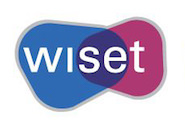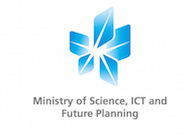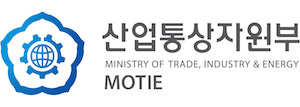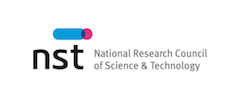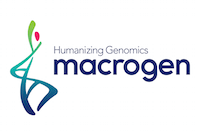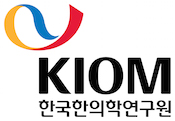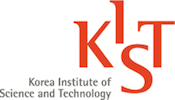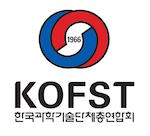GS6 Organisers and Partners
Organisers
Center for Women in Science, Engineering and Technology (WISET)
In 2011, the WISET was commissioned by Ministry of Science, Education and Technology of the Republic of Korea, the Korea Advanced Institute of Women in SET(WISET) to create conditions under which women can play a central role in science and technology sectors.
The aim of WISET is to establish a total support system for Women Scientists and Engineers by creating a sustainable eco-system through domestic and foreign integration, cooperation, exchange, and solidarity; by reinforcing the status as a total support center toward fostering and utilizing women scientists and engineers; and by building a global network hub for women scientists and engineers.
To realize these visions, the WISET have been provided five core projects: Supporting an innovation system in science and engineering and policy study on women scientists and engineers; Developing expansive support measures through analysis on legislative operational output, policy outcomes, and related domestic and international policy studies; Nurturing a self-sustainable ecosystem by introducing and systemizing a lifecycle tailored mentoring system; Establishing an interdisciplinary cross-matched network among different generations to foster female resources in SET; Fostering and systemizing the utilization of a core workforce of women scientists and engineers. The WISET will become the World’s leading organization in creating value of women scientists and engineers to contribute to the growth of ‘Science and Technology Based Economy’.
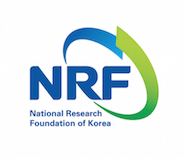 National Research Foundation of Korea
National Research Foundation of Korea
We are fostering new leaders who will spearhead Korea's drive global knowledge superpower.
Unfolding Korea’s Possibilities in the World - The Promise of a Better Tomorrow for Humankind!
The NRF is working to elevate Korea to a superpower of knowledge and brainpower by promoting development focused on research through close cooperation with world-class research funding agencies. We are also making efforts to become a global leader in research funding that will contribute to the advancement of Korea by presenting a new mission and vision for the future.
|
|
|
Korea Institute of S&T Evaluation and Planning
As a government affiliated research institute under the MSIP (Ministry of Science, and ICT and Future Planning), KISTEP has been the leading institute in providing future vision and strategies. KISTEP promotes technology innovation by encompassing all aspects of Korea’s national R&D system, including S&T planning, budget allocation and coordination, and R&D evaluation.
Over 300 researchers with diverse expertise have dedicated themselves to brightening the future of Korea. KISTEP continues to contribute to setting the course and devising strategies for Korea's national science and technology development.
 Portia Ltd, UK (co-founders of the Gender Summits)
Portia Ltd, UK (co-founders of the Gender Summits)
Portia Ltd designs and implements effective, evidence-based strategies for advancing quality of research and innovation through gender. Our work covers gender equality issues in STEM and gender dimension in the content, process and impact of science (STEM) endeavours. We work through national and international partnerships, involving scientific community, industry, policy makers and gender research scholars, to enhance science knowledge making; improve institutional practices and process; promote human capital; and ensure compliance with regulation. We believe firmly in putting the views and needs of science at the centre of the gender equality debate in science, and as a key to achieving sustainable economic growth and promoting Europe’s role as a global R&D leader. Portia co-founded the Gender Summits in 2011 as part of a project we co-ordinated, genSET.
Partners
 The Japan Science and Technology Agency
The Japan Science and Technology Agency
The Japan Science and Technology Agency (JST) is one of the core institutions responsible for the implementation of science and technology policy in Japan, including the government’s Science and Technology Basic Plan. From knowledge creation—the wellspring of innovation—to ensuring that the fruits of research are shared with society and Japan’s citizens, JST undertakes its mission in a comprehensive manner. JST also works to provide a sound infrastructure of science and technology information and raise awareness and understanding of science and technology-related issues in Japan.
 National Natural Science Foundation of China
National Natural Science Foundation of China
The National Natural Science Foundation of China (NSFC) is an institution directly under the jurisdiction of the State Council established in 1986 to administrate the National Natural Science Fund. In accordance with the Government’s guiding principles, policies and plans for the development of science and technology, NSFC is responsible to direct, coordinate and make effective use of the National Natural Science Fund to support basic research, stimulate free exploration, identify and foster scientific talents, as well as to promote progress in science and technology and the harmonious development of the society and economy in China.
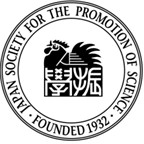
The Japan Society for the Promotion of Science
The Japan Society for the Promotion of Science (JSPS) is an independent administrative institution, established by way of a national law for the purpose of contributing to the advancement of science in all fields of the natural and social sciences and the humanities. JSPS plays a pivotal role in the administration of a wide spectrum of Japan's scientific and academic programs. While working within the broad framework of government policies established to promote scientific advancement, JSPS carries out its programs in a manner flexible to the needs of the participating scientists.
JSPS was founded in 1932 as a non-profit foundation through an endowment granted by Emperor Showa. JSPS became a quasi-governmental organization in 1967 under the auspices of the Ministry of Education, Science, Sports and Culture, and since 2001 under the Ministry of Education, Culture, Sports, Science and Technology. Over this 70-year period, JSPS has worked continuously to develop and implement a far-reaching array of domestic and international scientific programs. On October 1, 2003, JSPS entered a new phase with its conversion to an independent administrative institution, as which it will strive to optimize the effectiveness and efficiency of its management so as to improve the quality of the services it offers to individual researchers, universities, and research institutes.
 Korea Federation of Women’s Science & Technology Association
Korea Federation of Women’s Science & Technology Association
The Korea Federation of Women's Science and Technology Associations (KOFWST) began in 2003 with four member organizations for the purposes of fostering alliances between women's science and technology organizations to achieve; 1) enhanced status of women in science and technology 2) quality improvement and equal employment of women in science and technology, and 3) enhance national capacity of science and technology. KOFWST has a reliable federation leading Korea’s science and technology fields not only for women scientists and engineers but also working to apply developments of science and technology for everyday lives of people. This splendid achievement of KOFWST is the outcome of cooperative efforts of all member organizations, as well as dedicated leaderships played by former presidents, executives, board members and many others who diligently worked together. I would like to extend my gratitude to all the hard works and great contributions of everyone involved.

Association of Academies and Societies of Sciences in Asia
The Association of Academies and Societies of Sciences in Asia (AASSA) launched on January 1, 2012, as a consequence of the merger of AASA (The Associations of Academies of Sciences in Asia) and FASAS (The Federation of Asian Scientific Academies and Societies) is a non-profit international organization with science and technology interests. It is made up of 34 scientific and technological academies and science societies in Asia and Australasia.

